Trading Day: ASX lifts to fresh highs as Fortescue, Rio Tinto outperform
The local market has extended its record streak to a fifth session, thanks to strength in mining heavyweights BHP, Rio and Fortescue.
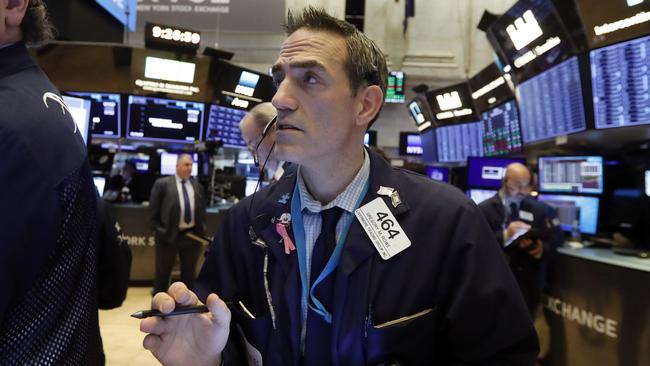
- Super Retail counts bushfire impact
- McKeon to join NAB board
- NIB downgrades profit outlook
- Lynas faces new legal challenge
That’s it for the Trading Day blog for Monday, January 20. Australian stocks set fresh highs of 7092.5 early in the session, as the heavyweight miners outperformed. Confession season got under way with Super Retail, NIB and Kogan under pressure.
4.39pm: ASX eyes next barrier as rally continues
Gains on the local market pushed the market to extend its year-to-date lift to near 6 per cent on Monday.
Bell Potter director of institutional sales and trading Richard Coppleson noted that after going through the 7000 mark last Thursday, the ASX200 came within just 7.5 points of the 7100 barrier.
“In the 14 trading days of January so far, 12 are up days and just 2 down days … I cannot ever remember seeing such a start to the year like this – you have to go back to the early 1980s to see a start as strong as this so early in the year,” he said, adding that the ASX200 was now up 5.92 per cent for the year so far.
Miners led the jump in equities – Macquarie tipped Rio Tinto to pay a special dividend to shareholders as it continued to benefit from strong iron ore prices. The miner lifted 0.9 per cent to close at $106.19.
Fortescue was one of the best performers, adding 3.7 per cent to $11.83 and helping Andrew Forrest to grow his net worth to $13bn while BHP put on 1.6 per cent to $41.24.
In the major banks, Commonwealth Bank slipped by 0.14 per cent to $83.93 as Citi named it as a key Sell idea.
Westpac lifted 0.4 per cent to $25.07, ANZ gained 0.3 per cent to $25.49 and NAB put on 0.6 per cent to $25.61 after announcing the appointment of former AMP and MYOB chair Simon McKeon to its board.
4.15pm: Records fall for fifth session
Local stocks marched higher for a fifth consecutive record-breaking session, sending the market price to earnings ratio to a record more than 18x.
More records on Wall Street helped the benchmark ASX200 to set a new record high of 7092.5 in morning trade, before settling up 15.4 points or 0.22 per cent to 7079.5.
Meanwhile, the All Ords added 16 points or 0.22 per cent to 7196.3.
Positive earnings results in the US continue to feed investor optimism, after the signing of an initial US-China trade deal last week.
Bridget Carter 3.25pm: Dalrymple IPO worth $2bn+
DataRoom | Credit Suisse has been hired to work on an initial public offering for the $2 billion-plus Dalrymple Bay Coal Terminal in a dual track process being run for the asset.
Owner Brookfield is known to have been planning to sell the Queensland terminal since late in 2019, and last month it emerged that it would also potentially explore an initial public offering, as first reported by this column.
Requests for proposals were called for from investment banks shortly before Christmas and presentations were held in the subsequent weeks.
Following that process, it is understood that Credit Suisse has been awarded the mandate.
It will join Bank of America and HSBC in working on a sale of the terminal on behalf of owner Brookfield.
The understanding is that an IPO is a fall back option should a suitable acquirer offering an attractive price not be found for the terminal.
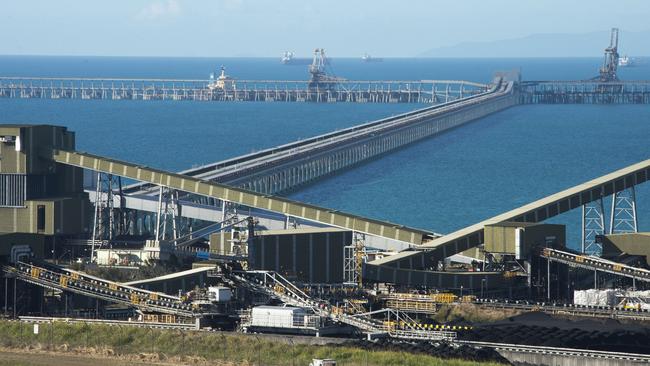
Perry Williams 3.07pm: Power price fall to hit AGL, Origin
AGL Energy and Origin Energy both face a challenging earnings outlook amid softer electricity prices and sluggish demand, analysts say.
Wholesale prices fell by up to 23 per cent in the December quarter compared to the same period a year earlier on falling solar, coal and gas costs despite supply shortages in Victoria, according to Macquarie.
AGL faces ongoing price pricing pressure with more interconnectors, renewables and changes to state-based policy in NSW and Victoria expected to dampen tariffs. Demand for the fourth quarter also remained soft, off 0.9 per cent, with December the ninth consecutive month of negative demand in the national electricity market.
Falling forward prices will hit FY21 earnings with a $5/MWh drop translating to a $130 million chop to pre-tax income. Macquarie rates AGL underperform and trims target price to $18.35 from $18.84. AGL last down 0.95 per cent to $20.62.
Origin also faces pressure with FY21 NSW wholesale electricity futures down by 21 per cent since October, Morgans says in a client note.
It estimates Origin’s giant Eraring coal power plant in NSW earned 19 per cent less pool revenue in 1H20 compared to the prior period a year earlier from both lower prices and output.
“Origin has performed strongly over the last three months but the fundamentals for its Energy Markets business have gotten weaker. Given that approximately 50 per cent of EBITDA is derived from Energy Markets, we think this will be a drag on performance.”
Morgans downgraded Origin to hold from add and cut target price to $8.43 from $8.62. Origin last down 0.7 per cent to $8.68.
Bridget Carter 3.02pm: CS tapped for Dalrymple Terminal IPO
DataRoom | Credit Suisse has been hired to work on an initial public offering for Dalrymple Bay Coal Terminal.
More to come.
2.36pm: Hail risk adds to insurers’ pain
It's a tough session for local insurers, made worse with the freak hail storms hitting Canberra this afternoon, which are set to move toward further along the east coast.
Before the open, NIB warned on its profit, saying it expected to earn $30m less than previously forecast after higher claims inflation.
That sent both NIB and Medibank into the market’s worst performers, and after reports of golf-sized hail fellow insurers QBE and IAG have joined the sell-off.
The weather bureau now warns of severe thunderstorms including destructive winds, possible “giant” hailstones and heavy rainfall across NSW and VIC.
NIB shares last down 13pc to $5.70, Medibank slipping by 2.1pc to $3.22, IAG down 1.7pc to $7.78 and QBE edging down 0.3pc to $13.87.
Golf ball size hail after a hail storm is seen in front of Parliament House in Canberra #auspol #hailstorm pic.twitter.com/lRdwWdX2Ur
— Mick Tsikas (@AAPMick) January 20, 2020
Cliona O’Dowd 2.32pm: Bank dividend cut hits AFIC
A strategic shift toward companies with higher growth prospects has dragged on the Australian Foundation Investment Company’s dividend income streams, the listed investment company has revealed, as it posted a 39 per cent plunge in profit for the six months through December.
The $7bn AFIC has for some time been transitioning away from financials and reducing the number of companies in its portfolio to focus on quality businesses with a competitive advantage.
“This has delivered a very satisfactory portfolio performance despite not being in some of the more speculative sectors of the market,” AFIC said in an update to shareholders.
“The dividend cuts from three of the four major banks, combined with a reduction in the proportion of our portfolio in financials, has put a short-term drag on our dividend income streams as many of our new investments have lower yields.”
1.39pm: Big four consensus too bearish: Citi
Consensus estimates for the major banks is too bearish, with earnings growth set to resume this year, according to Citi.
Analysts led by Brendan Sproules note that underperformance in the majors in the second half of last year was largely due to the collapse in interest rates, not necessarily fundamentals in the sector.
They say consensus estimates are set too conservatively and that earnings per share growth will pick up to 2 per cent across the majors in 2020 thanks to higher net interest margins, improving share of mortgages, no large restructuring provisions and minimal fines (except for Westpac’s $1bn Austrac fine).
Across the big four, Citi picks NAB as its key Buy idea on better deposit margins and the end of fines which plagued its performance last year while Commonwealth Bank is its key Sell after outperformance on safe haven buying.
“We see CY20 as the year that the Banks sector will end its run of underperformance … While most analysts see continued weak fundamentals, we see the multiple contraction over the last 5 years, which is the largest contributor to Bank TSR, struggling to find a catalyst for further weakness,” Citi says.
1.02pm: Heavyweight miners lead record rally
Shares on the local market are rallying for a fifth consecutive session, with materials stocks leading the charge.
At 1pm, the ASX200 is higher by 19 points or 0.3 per cent to 7083, after touching as much as 7092.5 earlier on.
Miners are outperforming – Fortescue is lifting by 3.7pc as BHP gains 1.7pc and Rio Tinto by 1.5pc.
But confession season has also begun – Kogan trades lower by 17.5pc and NIB by 13pc while Super Retail has made back much of its early drop to trade down by just 1.2pc at halftime.
Here’s the top 200’s biggest movers at lunch:
12.38pm: Silver Lake lifts product targets
Silver Lake Resources is leading the market’s top performers, after reporting record gold production and lifting its FY20 guidance.
The miner raised its sales guidance to 240,000 – 250,000 ounces of gold equivalent from 215,000 – 230,000 at a decreased average all-in sustaining cost of between $1300 per ounce to $1350 per ounce.
Silver Lake said both of its operations, at Mount Monger and Deflector, contributed to the lift.
SLR shares are higher by 8.2 per cent to $1.52.
12.30pm: Earnings growth still weak: MS
The ASX200 rose more than 6 per cent year to date, hitting an all-time high of 7092.5 amid record low interest rates and talk of more cuts but earnings growth is the missing ingredient.
Thus the 12-month forward PE ratio set a record high of almost 18.2 times this morning.
Morgan Stanley Australia equity strategist Chris Nicol says the year-to-date rise reflects the global relief rally around easing trade tensions, and bets of more stimulus domestically.
He sees two RBA cuts this year, with a cut to 0.5pc in August to support share valuations.
“However, without a substantial tax stimulus to accompany it, the earnings pulse looks challenged and without a rebound here we think a bull case scenario is difficult to achieve,” he says. He has a year-end target of 7000 points and a “bull case” of 7300.
“Central bank easing is important for markets and all else equal further RBA rate cuts should ensure some valuation support even at elevated levels. However, in our view current index levels are not just pricing low rates – they are also reflecting the expectation of an earnings rebound that has yet to emerge.”
His concern is that two more RBA rate cuts won’t be enough to see a significant pick-up in market earnings, based on his economic models. Mr Nicol continues to recommend an Overweight stance in Resources, amid improving global growth and AUD weakness.
S&P/ASX 200 last up 0.2pc at 7079.
12.05pm: ASX overbought on RSI, breadth
Australia’s S&P/ASX 200 share index is overbought on daily relative strength and breadth.
At 72 per cent, daily RSI (Relative Strength Index) is the highest since early July 2019.
At 80 per cent, the percentage of stocks above their 200-day moving average is the most since December 2017.
At 17.5 per cent (on Friday), the percentage of stocks with new 52-week highs was the most since June 2018.
At 13.5 per cent, the percentage of stocks with RSI above 70 per cent is the highest since July 2019.
The Advance-Decline line is still broadly supportive of the rally, albeit it has started to flatten.
Of course the caveat – in technical terms – is that the market is almost at the point of a strong uptrend defined by ADXR (average directional movement index) above 25.
ASX200 last at 7086.2.
1.1.50am: Qantas upside all priced in: Citi
Qantas has been cut to Neutral by analysts at Citi, as its cut its profit forecasts for the group by 1 per cent.
The broker notes that the company has had a good run, and the current share price adequately reflects a rational domestic market, ongoing ability to distribute extra cash to shareholders and any upside from ‘Project Sunrise’ non-stop flights to London and New York.
“In order to become more positive on the outlook for Qantas, we would need to see a return to stronger RASK growth, progress being made towards the domestic EBIT margin target set at Qantas’ Strategy Day and greater certainty around the capex profile from FY21e,” it said.
The downgrade was a part of a broader Transport and Waste note, which highlighted that “weaker domestic and offshore conditions will likely weigh on revenue growth, pushing companies to look at cost-out in order to preserve EBITDA margins”.
QAN last down 0.7pc to $7.10.
11.23am: ASX ex-Fin, Materials most pricey: JPM
While a table-topping 5.7pc year-to-date rise in the ASX200 must be considered in the context of its 2.6pc fall in December, its one-year forward PE ratio of 18.7 times is now just short of the S&P 500’s 19 times, notes JPMorgan Australia head of research Jason Steed.
The US market normally demands a PE premium because US companies pays less dividends and do more buybacks than Australian peers but Mr Steed says that where the ASX200 is in a league of its own is the valuation of ex-Financials and Materials.
“On that basis, we have the dubious honour of being the world’s most expensive market – by a considerable margin,” he says.
“While the forward multiple is less stretched when stripping out our two highest multiple sectors – Healthcare and IT -the index is still trading at a 5.8 per cent premium to the MSCI Developed Markets index.”
Mr Steed doesn’t draw any conclusions in this note but it’s hard to put a positive spin on it.
11.07am: Webjet chief gets bumper pay rise
Webjet managing director John Guscic has been given a $650,000 pay rise as his contract with the company is extended to June 2023.
In a filing to the market, Webjet said it had lifted the fixed annual salary of Mr Guscic to $1.5m, from $850,000 previously, saying it had not reviewed his pay grade since July 2016.
Furthermore, it said a “dramatically increased geographic spread” of the business had increased demands on the exec, and that the material growth in the company justified the pay jump.
Mr Guscic is also eligible for short term incentive rewards up to half of his fixed income for financial and non-financial benchmarks, and further up to $350,000 for the company’s performance against five non-financial hurdles.
“The Board is delighted that John has agreed to extend his tenure. He has been Webjet’s Managing Director for a period now approaching 10 years. In that time, Webjet has grown its
business dramatically, particularly its WebBeds division which, from a standing start in 2013, is now the largest business (by EBITDA) in the Group,” chairman Roger Sharp said.
WEB shares last down 0.55pc to $14.36.
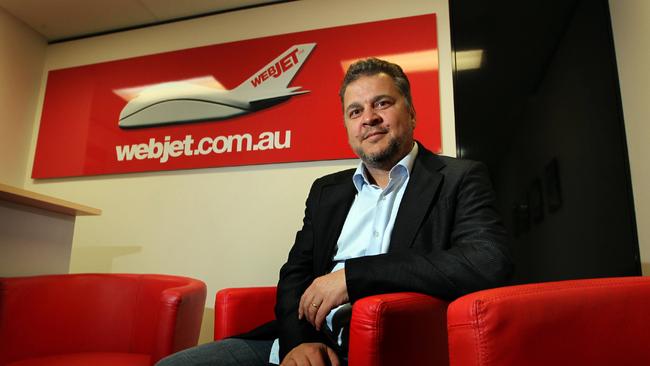
10.42am: NIB drops to nine-month low
A warning on NIB’s full year forecasts has prompted NIB’s largest slip in over 11 years, sending shares to their lowest trading levels since April.
NIB this morning said it expected full year underlying profit at $170m, down from a previous forecast of at least $200m.
It says this is largely due to an increase in claims expense across a number of the group’s underwriting business lines.
Shares fell to $5.44 early, and last traded down 13 per cent to $5.68.
10.38am: IGE suspended after funding bungle
Shares in Integrated Green Energy Solutions were suspended ahead of the open, following a confession from the company that a previously announced trillion dollar backer was not in fact affiliated with its investment partner.
The ASX today said the stock would be suspended “pending further enquiries by the ASX on the funding update correction”.
IGE last traded at 13c.
10.23am: Shares set record despite confession hit
Australia’s S&P/ASX 200 share index rose 0.4pc to a record high of 7090.6 in early trading after US gains.
Share trading volume is about half the 20-day moving average ahead of Martin Luther King Day with many local fund managers still on holiday.
The Materials, IT, Health Care, Energy and Consumer Staples sectors are outperforming, while Consumer Discretionary, Utilities, Communications, Financials and Industrials underperform.
All-time highs were achieved in six companies including CSL, James Hardie and ResMed.
Kogan dropped 21pc and Super Retail Group fell 8pc on sales updates while Mesoblast rose 7pc.
10.18am: Kogan dives on update
Shares in Kogan have dropped by 22 per cent in early trading, after the company handed down a first half business update.
The group said it had surpassed last year’s results for the highest half of gross sales and profit on record, but that seemingly wasn’t enough to excite investors.
RBC analyst Tim Piper says Exclusive Brands was the “key miss” for Kogan in its trading update. The rest of the business is tracking roughly in line with his expectations.
“We had previously upgraded our forecasts on expectations of a stronger 1H20 Gross Profit growth figure than what was reported in today’s update,” Mr Piper says.
“Following 35 per cent growth in the Exclusives channel through 1Q20, the 17 per cent growth figure for 1H20 implies a much weaker 2Q20 than expected.
“While there are positives in the update including higher Marketplace sales, stronger cash flow than expected and continued reduction in Operating Costs, we note KGN’s share price has re-rated materially in recent months.”
KGN last down 21pc at $6.24.
10.15am: Shares set new record
The local market has continued its record-breaking run, rising to as much as 7087 at the open.
That’s a 23 points or 0.3 per cent gain from Friday’s close.
10.05am: Flat Dec traffic at Sydney Airport
Sydney Airport has reported flat monthly traffic for December, as domestic growth offset a slip in international traffic.
The airport reported 0.6 per cent growth for December, compared to the same time last year, while year-to-date performance for the year was flat a 0.1 per cent.
“The fact we delivered a solid traffic performance across the calendar year when trading conditions have been at their toughest in more than a decade speaks to the diversity and resilience of the business,” chief Geoff Culbert said.
Visitors from UK fell sharply for the month, down 3.8 per cent as Chinese visitors lifted by 5.4 per cent.
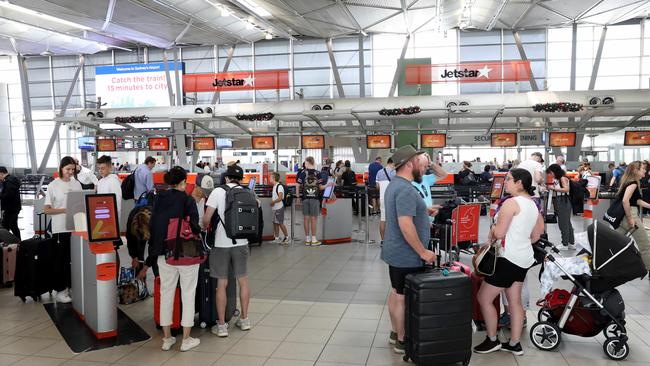
Nick Evans 9.50am: Funding bungle to rattle IGE shares
Shares in would-be green power play Integrated Green Energy Solutions are set for a battering after the company confessed that an $US850bn ($1.2 trillion) investment fund supposedly backing its project had never heard of its US partner.
IGE shares have more than quadrupled since the beginning of the year, from 11c on December 27 to a high of 30.5c a few days later, after the company said it was closing on a $US300m loan to back a US plant to turn shredded plastic from old cars into automotive fuel.
On Wednesday, it named the $US850bn Abu Dhabi Investment Authority (ADIA) as the source of the $US300m, through US investment partner Tangier Service Enterprises Inc.
But in an aftermarket disclosure late on Friday, IGE retracted its earlier statement, saying it had now been advised that ADIA “does not have any involvement with Tangier Service Enterprises Inc”.
“Therefore, ADIA is not the source of funding to be provided,” the company said.
Cliona O’Dowd 9.43am: Indoor Skydive delay breaches loan
A delay in the sale of Indoor Skydive Australia’s Perth facility has led to it breaching its repayment obligations with its bank Westpac, the tourism company says.
The deadline for completing the sale of the facility to SkyVenture has been extended to January 24 due to an “outstanding condition” that was yet to be met, the company said.
The ASX-listed leisure operator said it was in discussions with Westpac to remedy the breaches and arrange for revised terms and covenants moving forward.
Indoor Skydive announced the sale of iFLY Perth in June 2019, telling shareholders it had agreed to sell the facility to SkyVenture, which manufactures vertical wind tunnel equipment. In return, SkyVenture would write off the skydive operator’s outstanding debt and royalty payments and pay Indoor Skydive $500,000. The sale was originally expected to be completed within weeks.

9.32am: Shares to rise to new records
Australia’s sharemarket is set to open up 0.7pc to a record high near 7114 based on futures relative to fair value.
At that point it will be trading on a record high 12-month forward PE ratio above 18.1 times and decade-low dividend yield below 4pc.
Strong US economic data, particularly housing starts, saw the S&P 500 rise 0.2pc to a record high 3329.62 on Friday. Still, Atlanta Fed GDP fell to 1.8pc from 2.4pc at year end.
US bond and stock market closures for Martin Luther King Day will make for a very quiet Asian session but light trading volumes year to date appear to have contributed to a lack of selling which may be evident again today.
Light volumes may be exaggerating the year-to-date rise caused by record-low rates, central bank liquidity, and expectations of more rate cuts.
In terms of the central bank liquidity driving asset prices, the Fed’s balance sheet alone has swollen 11pc to a 15-month high of $4.177trn since September.
The Australian market is currently up 5.7pc year to date, its best start since 1986.
The next big event for Australian markets is the RBA meeting next Tuesday week. Consumer confidence index on Wednesday and employment data on Thursday will set the tone.
S&P/ASX 200 rose 0.3pc to last 7064.1 on Friday.
9.17am: Independence Group rebrands
Nickel producer Independence Group will now be known as IGO Limited after a change of name approved by shareholders at its AGM.
Alongside the name change, the group announced its $312m hostile bid for Panoramic Resources had lapsed, after a number of conditions were breached by the target.
9.04am: Super Retail counts bushfire impact
Super Retail Group says more than 50 of its BCF stores have been directly impacted by bushfires and drought, as it reported flat like-for-like sales over December and November.
It comes after several analysts downgraded earnings forecasts for the group last week, on suggestions that the ongoing bushfires had lessened demand for outdoor goods.
Super Retail said Black Friday and Cyber Monday had boosted sales growth earlier in the period, but that bushfires and associated haze had weakened December trade, especially within its camping category.
Total sales growth for the group was at 2.9 per cent for the first half of the year, and like-for-like-sales at 1.7 per cent.
The group’s first half earnings is now expected to be between $113m to $115m.
9.01am: What’s on the broker radar?
- Costa Group cut to Hold – Morningstar
- Independence Group cut to Sell – Morningstar
- Nufarm raised to Buy – Morningstar
- Nufarm cut to Hold – Jefferies
- Origin Energy cut to Hold – Morgans
- Qantas cut to Neutral, target price raised 8pc to $7.45 – Citi
- Ramsay Health cut to Sell – Morningstar
- Rio Tinto cut to Accumulate – Ord Minnett
- Warrego Energy rated new Speculative Buy – Hartleys
- Whitehaven raised to Hold – Ord Minnett
8.45am: McKeon to join NAB board
National Australia Bank has bolstered its board with prominent businessman and former AMP chairman Simon McKeon AO.
In a statement to the market, chairman Phil Chronican said Mr McKeon had accepted the bank’s invitation to join the board.
“In recent years these organisations (the major banks) including NAB have been subjected to significant and well-founded criticism while also becoming increasingly complicated and challenging entities to run,” Mr McKeon said.
“Joining NAB as a director gives me an opportunity to assist the improvement process from the inside, while also supporting the bank’s ambitions at a time of seriously enhanced competition.”
Mr McKeon stepped down from AMP in 2016 blaming a change in his “circumstances”. His appointment is subject to regulatory approval.
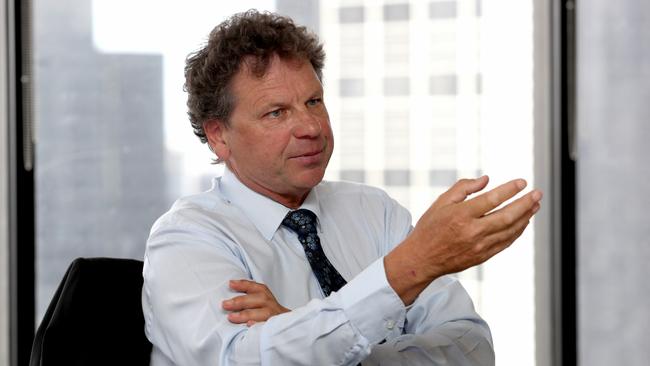
8.30am: NIB downgrades profit outlook
NIB Group says it now expects full year underlying profit to be at least $170m, down from a previous forecast of at least $200m.
It says this is largely due to an increase in claims expense across a number of the group’s underwriting business lines.
Managing director Mark Fitzgibbon said the recent claims environment in its Australian and New Zealand health insurance operations was starting to place pressure on NIB’s forecast FY20 earnings.
“We’ve definitely seen a tick up in claims and while we did anticipate some level of claims inflation across the group in FY20, recent experience is that it’s been more widespread across a number of business lines than we previously anticipated,” Mr Fitzgibbon said.
8.15am: Lynas facing new legal challenge
Lynas Corporation says it is facing a legal challenge to the Malaysian government’s decision to renew its operating licence.
Lynas told the ASX on Friday it had received documents filed by three individuals commencing judicial review proceedings in the High Court of Malaya in Kuala Lumpur.
Lynas’s licence was renewed in August last year despite public concerns over toxic waste from its operations.
Lynas says it has been the subject of four independent scientific reviews in Malaysia, all of which have declared it to be low risk and compliant with the law.
“Lynas has full confidence in the robustness of the Malaysian judicial system,” Lynas told the ASX. “While every case will be decided on its merits, these individuals (and persons believed to be associated with them) have lodged several previous court challenges, all of which have been dismissed.”
Malaysia’s prime minister and 27 other minsters have also been named as respondents to the court proceedings.
8.05am: Gentrack to cut costs
Gentrack Group said it plans to cut annual costs by $NZ8 million in response to “difficult conditions” in key markets for its utilities software.
The company said revenue in its 2020 financial year will be significantly lower than previously forecast. Underlying profit, or EBITDA, will range from $NZ8 million to $NZ12 million for the full year, it said.
Gentrack, which makes billing and business management software for utilities and airports, said regulatory price caps in the UK and Australia had led to a reduction and deferral of information technology investment.
“This has impacted Gentrack’s sales pipeline to a greater degree than previously expected,” the company said.
It said $NZ4 million of its targeted cost reductions will be achieved in the 2020 financial year.
Dow Jones Newswires
7.55am: Palladium pushes above $US2,500
Palladium soared over 9 per cent to power above the key $US2,500 an ounce level for the first time on Friday, boosted by a chronic shortage of the metal in the market and hopes the global economy might be turning the corner.
Spot palladium was 6.9 per cent higher at $US2,472.80 per ounce having earlier surged past the $US2,500 an ounce level to hit a record peak of $US2,537.06. The auto-catalyst metal was also pacing for its best week since December 2001, surging more than 16 per cent.
“This is a structural deficit market that has been brewing for years and we don’t really see an increase in supply on the horizon to quell that,” said Ryan McKay, a commodity strategist at TD Securities.
Palladium has constantly been breaking records, rising more than 50 per cent last year, on a sustained supply squeeze and expectations for stricter emission laws across the globe.
Also helping boost prices, China and the United States signed a preliminary trade deal on Wednesday that could spur economic growth, and a Chinese auto industry group said vehicle sales would slow their decline.
Palladium is primarily used by automakers for catalytic converter manufacturing to clean car exhaust fumes.
Reuters
7.45am: Oil steadies after China news
Oil prices steadied after sluggish economic growth in China, the world’s biggest crude importer, raised concerns over fuel demand and countered optimism from the signing of a China-US trade deal.
Brent crude futures rose US 23 cents to settle at $US 64.85 a barrel on Friday. US West Texas Intermediate (WTI) crude futures rose 2 US cents to settle at $US 58.54 a barrel.
For the week, Brent fell 0.2 per cent, while WTI lost 0.8 per cent. China’s economy, the world’s second-largest, grew by 6.1 per cent in 2019, its slowest expansion in 29 years, government data showed on Friday.
Reuters
6.40am: ASX to extend record run
Australia’s share market is tipped to open on a high after another record close on Wall Street.
The SPI futures index is pointing to a rise of 36 points, or 0.51 per cent, in early trade.
“We had another record close on Wall Street, which is like a broken record itself now,” CommSec chief economist Craig James said.
“It looks like our market is headed for yet another record high.”
Australian stocks notched up a fourth consecutive record-breaking session on Friday, recording a near two per cent gain for the week.
The benchmark S&P/ASX200 index hit an all-time intraday high of 7,088.1 points, finishing Friday up 22.3 points, or 0.32 per cent, to an all-time closing high of 7,064.1 points.
On Friday the Dow Jones Industrial Average ended up 0.2 per cent at 29,348.10. The broadbased S&P 500 gained 0.4 per cent, closing at 3,329.62, while the tech-rich Nasdaq Composite Index advanced 0.3 per cent to 9,388.94.
Mr James said data released on Friday on China’s economic activity, and United States housing figures, encouraged investors.
“There’s no negative news really out there,” he said.
The US Senate also passed a new trade agreement between Canada and Mexico which has helped to resolve an element of uncertainty that’s been present in the market, he added.
The signing of phase one of the US and China trade deal has also boosted confidence following the end of the 18-month long tariff war between the two giant economies that had hampered global growth.
There hasn’t been much change in the Australian dollar which is buying US68.7 cents while the gold price continues to rise.
“It’s somewhat unusual to have all asset classes doing very, very well,” Mr James said.
The key report to keep an eye out for this week is the Australian job figures data which is expected to be released on Thursday.
AAP
6.25am: Volt Bank raises $70m
Challenger bank Volt Bank has completed a $70 million equity funding from institutional investors, bringing its total raising to $100 million in equity.
Volt chief executive and co-founder Steve Weston said the digital bank is planning to open to the general public in late February and will use the money as regulatory capital to support its mortgages, personal and business loans.
Volt is planning another equity funding round focused on investors in the United Kingdom and the Middle East, and is looking to list on the ASX late this year. “The high levels of interest we are receiving from potential banking partners validates our platform-based business model and the neobanking sector as a whole,” Mr Weston said.
Along with ‘86 400’ and Xinja, Volt is one of several “neobanks” that are hoping to shake up Australia’s financial sector.
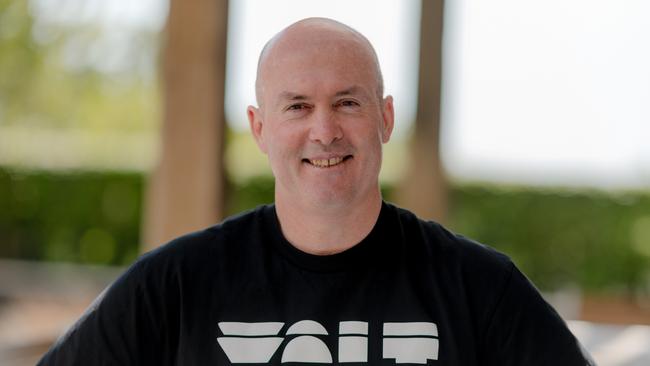
AAP
6.20am: Korean retail founder dies
The founder of South Korea’s sprawling retail conglomerate Lotte Group has died at the age of 97, company officials said.
Shin Kyuk-ho’s reputation was tarnished in his final years when the wheelchair-bound tycoon was convicted of professional malpractice and embezzling from the firm to benefit his relatives in late 2017.
He was sentenced to four years in prison but was allowed to stay out of jail on health grounds.
AFP
6.15am: Wall Street recap
Wall Street stocks again finished at records on Friday, capping a positive week of trade-related news and mostly solid corporate earnings.
The Dow Jones Industrial Average ended up 0.2 per cent at 29,348.10. The broadbased S&P 500 gained 0.4 per cent, closing at 3,329.62, while the tech-rich Nasdaq Composite Index advanced 0.3 per cent to 9,388.94.
Construction of new US housing shot to a 13-year high last month, according to Commerce Department data that added to positive investor sentiment following the US-China trade deal signed earlier in the week and a round of banking earnings that mostly topped expectations.
US stocks had also finished at all-time highs Thursday.
Analysts see few economic clouds on the horizon the short term but worry that high stock valuations could prompt a sell-off.
Among individual companies, Dow member Boeing dropped 2.4 per cent after testing identified a fresh software issue with the company’s 732 MAX, which remains grounded after two deadly crashes.
AFP



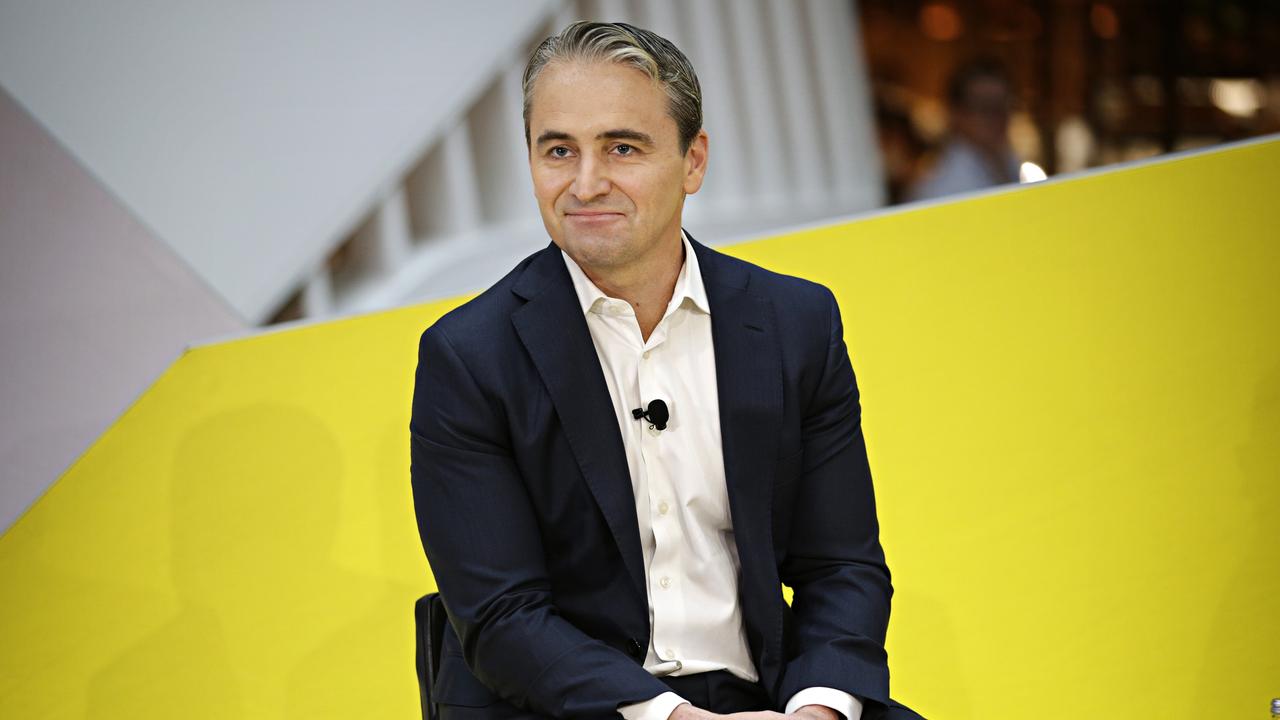
To join the conversation, please log in. Don't have an account? Register
Join the conversation, you are commenting as Logout